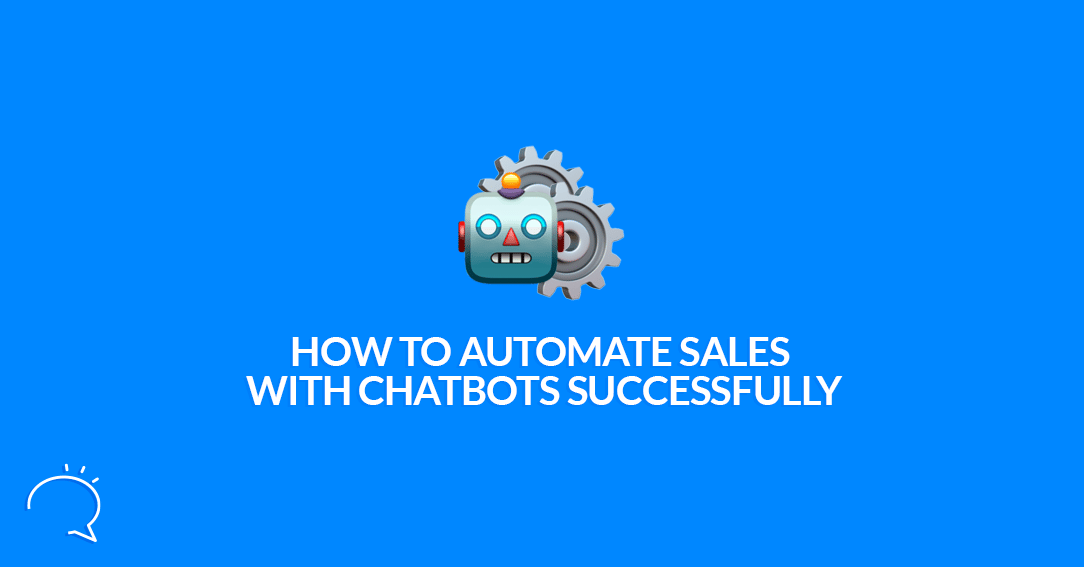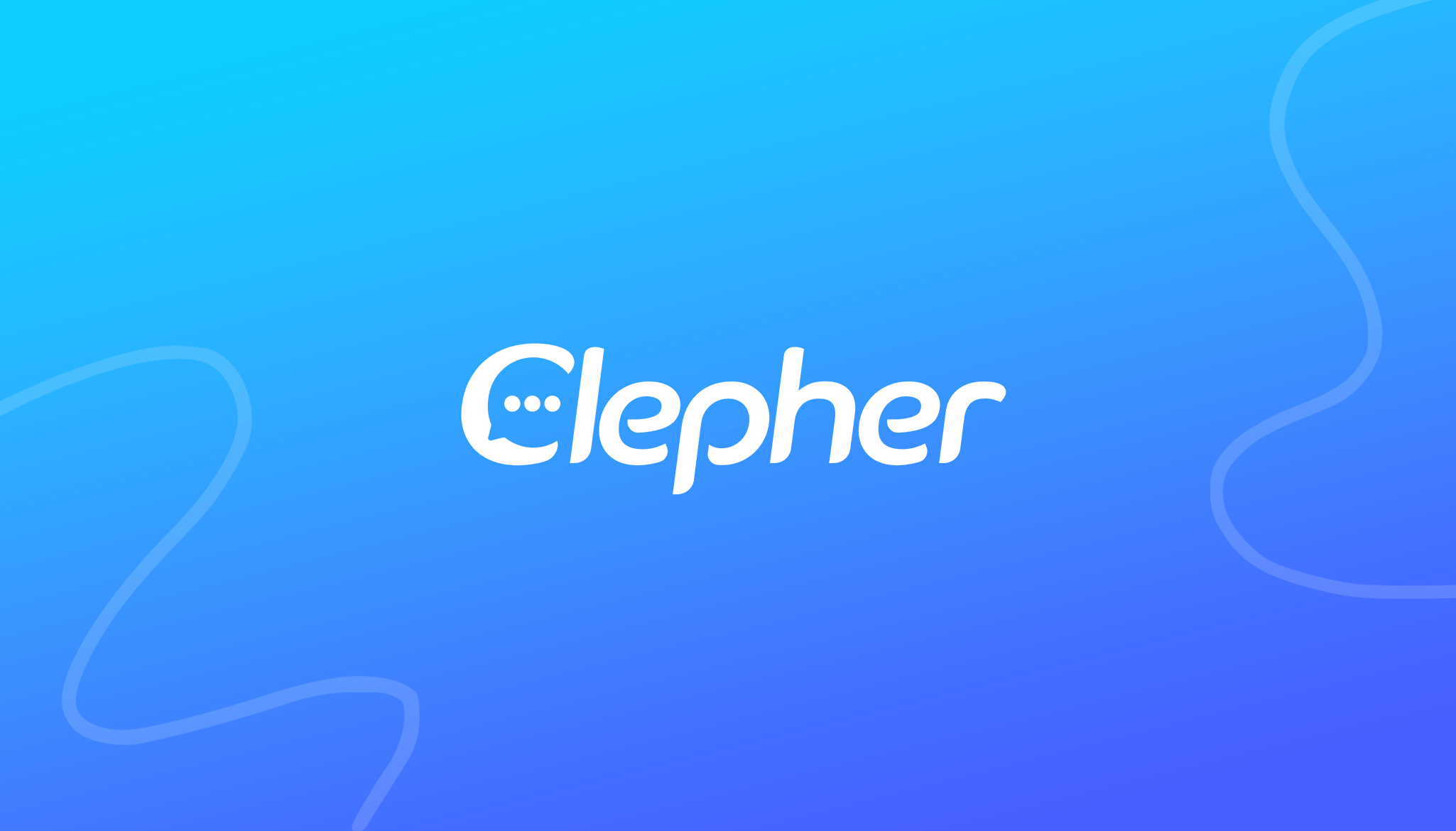In business, there are various things a business owner has to deal with. And it (usually) is challenging to handle everything all by themself. For example, sales are an essential part of business, and it takes a lot of time and effort for any business owner to manage a sales team. And this is one of the reasons why business owners prefer to (semi) automate sales with chatbots. Because, in essence, with bots on their side they can replace a lot of manual actions by automation… Definitely in the sales cycle!
See, the bot paradigm impacts sales teams worldwide in almost every business. The actual people needed for sales are taking the biggest hit. Because people in sales are being replaced with these little machines. As a result, chatbots have now become an integral part of many big companies. Nowadays, it’s a necessity for them. You can even say bots have become a significant part of the marketing arsenal for these big companies.
And the latter is showing, the usage of bots is more familiar in other industries too. We can see this in the rising overall market value for chatbots. In fact, it’s estimated that the total market size of the bot industry will rise up to $9.4 billion by the year 2024. (Guess bots are to stay? 🤯 Unbelievable, right?)
“Hmm, does this mean chatbot-tech is only reserved for the fortune 500 companies?”
Frankly? It does not. It really doesn’t matter whether you’re a small, medium, or a big business owner. Whether you do business online or offline… A chatbot will help your business grow. Moreover, bots give SMEs the power of the fortune 500 companies at just a fraction of the cost.
So, if you are looking to automate sales to grow your business, then this article is for you… (spoiler alert, there’s a 99% chance it does make sense to add a bot to your business).
Should your Business Automate Sales with Chatbots?
See, when bots arrived on the scene, they were commonly referred to as “Conversational Agents”. But the bots (having come a long way) became much smarter and are now useful for lots of industries. And yes, machines will someday replace humans! At least, that’s the premise of the chatbot. Whether you want it, or not, bots have become a suitable replacement for humans in business. Especially in the sales sector. Because next to answering simple support questions, they are now also used as a communication tool to qualify leads and to sell various products and services. We’ve seen this happening at scale in big industries already. Where these bots have been selling to customers without any human intervention.
Now, this next-gen bot technology has already automated sales for big businesses. But, with the help of tools like Clepher, bots can now automate sales for small and medium businesses (SMEs) too! There’s a massive amount of money needed to hire and employ people. Especially for sales jobs, it’s costly! And for a small business, it becomes challenging to use so many employees just for sales. This is the reason why so many small business owners are also now aiming at Automating Sales with chatbots.
Before diving into the meat and potatoes, let’s first discover how chatbots can automate the sales process of a company.
How Chatbots Help With Automating Sales?
Chatbots, or bots, are in its basis, chat widgets that are there on the webpages of the companies. Or, in the case of Messenger, a programmed bot attached to a Facebook page. They’re designed in such a way that it uses “A.I.” to have a conversation with any person. This can be a person who has visited your website and may have a question he’s looking to resolve.
Did you know that chatbots can replace a large sales team? And it doesn’t have to cost much either! Because you create your own bot (meeting your sales need) in minutes with Clepher. As a result, you’re automating (or should I say replace) parts of the sales sequence… Just like that.
Now, if you’re selling low-ticket items, you may wanna consider thinning the workforce. However, if you’re selling high-ticket items… You can double down on the closing part of the selling.
To do so, you need to first understand and create a goal for your bot. A goal that your bot wishes to achieve in the coming year. You need to understand what business you’re offering. And what the products and services are you’re selling. You need to have your bot act like a salesperson. If you’re selling gold jewels or real estate, then expecting your bot to sell is not a good option. This is because, in such cases, it involves hefty amounts, and people expect to talk to a human instead of speaking to a machine. But even for such industries, bots can be of great use!
Now, because bots can’t sell higher-priced products… it doesn’t mean they can’t make a base for selling them. I.E., it can qualify the lead, or book a meeting. We’ve had customers telling us they were “selling cars” through their chatbot… But, on closer inspection, we found it was the chatbot that laid the foundation of the sale. The actual close of the sale happened in a face-to-face conversation.
As a rule of thumb, if your business involves lower priced items, you may use bots to close the deal. If it means higher prices, use the bot to lay the foundation, and use it as a lead qualification tool first.
Can Chatbots Replace Salespeople?
So, if they are trained like actual salesmen are, then they can help you to generate leads. Which, in turn, increases your sales and makes your business grow. You must “train” the bots to ask a few questions to the customer. The answers to these questions determine whether the customer is your potential customer. This process is called Lead Qualification, or Qualifying Leads. It’s primarily used to find out if these prospects will buy your product or not.
I.E., Let’s say you’re selling a children’s storybook. The first question to the customer should be about whether they have children or not. If someone answers “no”, you already know that there’s a high chance it’s not a potential customer. Because that person is not someone from your target audience.
After “training your bot” with the questions, you must also feed in a sequence of questions or follow-up questions. This way it becomes a useful all-rounder conversation. This should help to make the visitor feel more comfortable, and not necessarily think they are talking to a machine. It’s essential to make the bot convenient for subscribers so that they can ask questions freely. And – hopefully – easily make up their mind to buy your product.
A chatbot certainly can be a replacement for a salesman but it takes some practice when you have the bot functioning at that level. But, as a start, questions must be fed sequentially. To ensure that the visitor is having a conversation with the bot. And not merely a question and answer round. Your bot can also help you out to send a follow-up message. You can send this to the subscribers who’ve talked with the bot but left it midway… In 24 to 48 hours or more, you can choose to program your bot to send a follow-up message. After all, most money is in the follow-up!
Look, bots can help businesses grow by taking feedback from people about the products they buy. Or they can share feedback they have had with the company, for instance, customer support. Point being… You must design your bot in such a way that the replies of the customer inquiries are short and to the point.
For a bot to replace a real salesman, it must not do all the talking. Quite the contrary, it must listen to the customer. Asking the right questions and capture relevant important information. This data can be used to make the sale. One thing to keep in mind is that everything must be done in a conversational way. There should be a conversation between the 2; customer and bot. The goal should be that the customer is convinced and impressed by your product… and then the decision to buy your products.
Knowing about Facebook Messenger Chatbot
A Facebook Messenger chatbot uses the Facebook Messenger application as its working platform. For example, we all have downloaded Facebook messenger apps on our phones, haven’t we? What do we do with that app? We communicate with people through the Facebook messenger app. Now, if you are a business owner, you can sell products to your customers by communicating with them through this app.
By using a chatbot, you can automate this process. You install a bot on the Facebook page of your business. Then, the bot can have conversations with the customers visiting your Facebook page. Or, when you install the Customer Chat Widget, from your website! What’s cool is that there is no human intervention in this case. The customers talk directly with the chatbot and have all their queries solved.
Why should businesses use a Messenger Chatbot?
Facebook is currently one of the biggest – if not the biggest – social media platforms. Almost every person on earth that has Internet (and not living in China, lol) is on Facebook. There are more than 2 billion active users on Facebook! That’s a lot!
And here’s the cool part… If you create an account on Facebook… you automatically create a Messenger account too! That means there are currently over 2 billion people on this Messaging App also! All these people can talk with you via Facebook or the Messenger App. Look, the chance you got someone monitoring the direct messages on your Facebook page is slim. Even when you decide to put someone to watch your Facebook page… It’s still impossible to place them there 24/7.
A chatbot helps you solve this issue. It can not only be there 24/7, but it can answer 80% of the questions visitors have. If it can’t answer their question, just give the option to ‘ping’ a human. Facebook is the third most used application in the whole world. This app started as a communication medium between friends and families. But lately, it has been used as a medium of communication for businesses.
Facebook Messenger chatbots have been gaining momentum. This because businesses realized it takes around 5 seconds for a prospect to decide whether they are going to purchase your product… or not. In any customer’s journey, prospects have several questions on their mind. Questions like: “Does it come in my size?” or “Do you have it in black?”. And if all their questions get answered fast, the decision to buy your product is easier made. This is quite possibly only possible with the help of a chatbot.
Chatbots are also cost-effective. Plus, way more affordable than having a mobile application developed. Creating a chatbot is less challenging and less costly than making a mobile application for the same purpose. Facebook Messenger chatbots gained immense popularity. Only because it allows companies to have a conversation directly with their customers. Facebook also supports its use as a platform for the operation of chatbots. Chatbots are made easy to install on the Facebook application, and it integrates it into its website and app easily.
eCommerce websites use Messenger chatbots too! They primarily help them in saving cart abandonments and upselling related products. I.E., if a customer bought a shirt, a chatbot could send a message to a fresh pair of jeans or shoes to go with that shirt. This way, the customer is more naturally persuaded to buy the items. And what if people did not complete the checkout process? The chatbot can remind the person their cart is still waiting for them to checkout. The bot can even throw in a 5% discount coupon to persuade them to complete the checkout process.
Conclusion
The chatbot market is growing, and it is becoming an integral part of every company. Earlier, chatbot tech was only reserved for big companies to automate their sales. But, now small and medium businesses can use chatbots to automate their sales. E-commerce especially is using chatbots because they are helping their business grow. Chatbots are an artificial replica of real salespersons. They try to sell the products to their customers and close the deal.
Along with it, they also send follow back messages to the customers who left the conversation midway. Bots have become smarter. They assist the company by finding potential customers and generating leads. As more leads are generated, the sales of a company increase. This, in turn, helps in the growth of the business.
Facebook Messenger chatbots use Facebook messenger application as a platform to operate. These chatbots are very simple and easy, and there are many chatbot builders in the market, Clepher being one of them. Clepher, as the name suggests, spawns clever bots for the companies. These bots help businesses to communicate with the customers via Facebook Messenger.
So, if you are a small, medium, or big business having, then you must also try automating sales with chatbots. There’s a BIG chance it will too make your business flourish! Why not give us a try and see if yourself?
Want to Start Automating Sales with Chatbots?
Clepher is a chatbot builder and marketing suite for Facebook Messenger. Our unique features make it stand out in front of the other tools that only try to do the same. It helps SME (online as well as offline) businesses grow by automating their sales. We offer a variety of features to our customers at an affordable price. By doing this, we give it a competitive edge and making it one of the more popular chatbot creators out there.
We boast a 4.9/5 stars satisfactory rating. And last time we checked, that’s outranking competitors. Plus, no matter which industry you are in, your business will grow with Clepher. We’ve got 100’s of templates! You can simply install in just a few clicks.
Various eCommerce sites prefer our services as it offers a broad range of features. Frankly, with our help, building a Messenger chatbot is an easy and straightforward process. With us, you create a bot for your business in less than 10 minutes. Provide you a time-saving solution that grows your business.
And it doesn’t have to be hard to start… Here are the 6 pillars to a successful chatbot.
Related Posts



